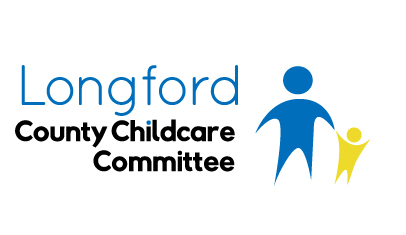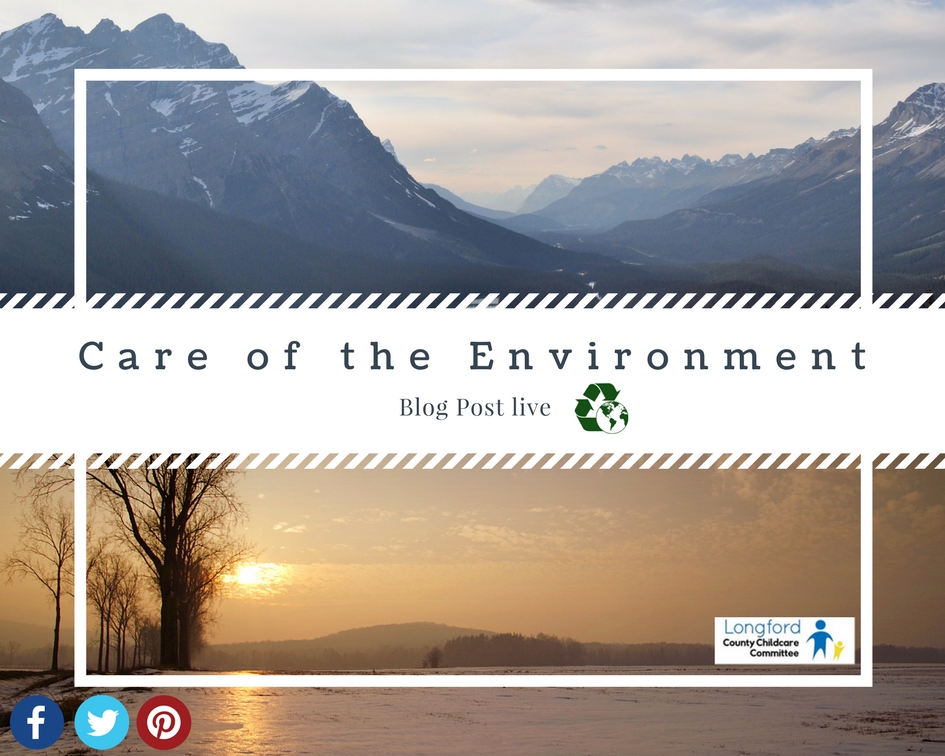Care of our Environment
As adults we have a responsibility to care for our environment, and do our best to ensure there is a clean planet to pass on to our children and our children’s children. With that said, it is also our responsibility to pass on our knowledge to children and teach them to love their world and care for everything in it. In this blog post, we will take a look at all the ways within your service you can do so.
Recycling–
Model good recycling habits. We’ve previously done a blog around the area of recycling, please take a look here. Recycling is so easy when you and the children are in good habits. Here are some tips –
- encourage the children to take responsibility for their own waste
- have recycling and waste bins, placed conveniently around the service
- wherever there is a waste bin, a recycling bin should accompany it
- Create a poster outlining what materials are recyclable
On the Mulleadys website, the main waste collector in Co. Longford, they have the bin contents explained as below. I was recently out in one service in the county and they explained how their preschool classes visited Mulleadys and learned about recycling and waste.
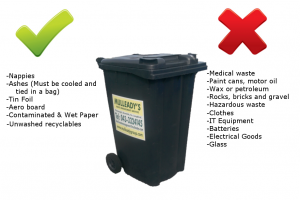
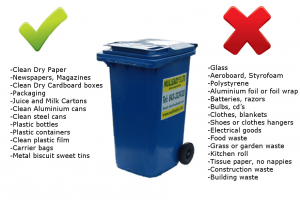
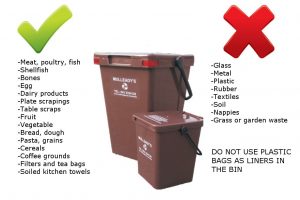
Do people know:
Small and large electrical items can be recycled at two private civic amenities in the county. Visit Longford Coco here, for further information. You can create a leaflet, using the information on the website, to share with the children’s parents, for items such as furniture (did you know couchs can be recycled, ReVamp, Athlone Rd, Co. Longford) tyres, electrical items, hazardous items and so on. If you visit Repak, the FAQs have interesting information, like the metal tops of jars and beer bottles are recyclable. They also provide great videos about recycling which you can see here.
Batteries recycling- You can request delivery of free battery recycling boxes for your service, children can encourage their parents to recycle batteries and bring them into the service. Visit WEE Ireland here and fill out the form.
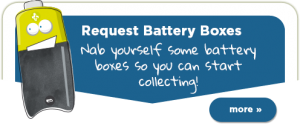
Symbols–
Recycling Symbols. There are ten in total. These can be shared with the children in your class, or perhaps show them the main ones, like the recycling symbol or the tidyman symbol.
![]() Glass Recycling
Glass Recycling
This recycling symbol indicates that a glass product can be recycled if placed into a glass recycling bottle bank, once it has been washed.
![]() The Green Dot
The Green Dot
This is a European trademark that producers and suppliers include on their packaging advising consumers that they have contributed financially to the recycling of the products packaging. It does not mean that all packaging supplied is recyclable.
![]() Aluminium Recycling
Aluminium Recycling
This recycling symbol indicates that aluminium packaging can be recycled.
![]() Steel Recycling
Steel Recycling
This recycling symbol indicates that steel can be recycled.
 Paper Recycling
Paper Recycling
This recycling symbol indicates that paper packaging can be recycled.
 Mobius Loop
Mobius Loop
This recycling symbol indicates that the products packaging can be recycled. It does not automatically mean it is accepted in all recycling collection systems. Sometimes this is used with a x% figure in the middle which is used to denote that the packaging contains x% of recyclable material.
![]() Wood Recycling
Wood Recycling
This symbol indicates that wood packaging has been sustainably sourced and may come from recycled wood.
![]() Tidyman
Tidyman
Dispose of this carefully and thoughtfully. Do not litter
 Plastic Recycling
Plastic Recycling
The symbol above may contain a number which can be used to identify different types of plastic. Most of the plastic recycling facilities in Ireland will accept PET (soft drinks bottles – denoted by the number 1 within the triangle) and HDPE (i.e. detergent, shampoo and shower gel bottles – denoted by the number 2 within the triangle) bottles. Some also take clean LDPE such as plastic bags and film/wrap – denoted by the number 4 within the triangle. Please check with your local recycling centre or waste contractor to see what types of plastic they accept for recycling.
 Non household waste
Non household waste
The crossed-out wheeled bin symbol indicates that the item should be disposed of separately from household waste. The item should be handed in for recycling in accordance with local environmental regulations for waste disposal.
By separating a marked item from household waste, you will help reduce the volume of waste sent to incinerators or land-fill and minimise any potential negative impact on human health or the environment.
Water Conservation–
We all have responsibility to conserve water and again pass this onto our children. In service, there may be little changes you can make, if the children are brushing their teeth in your service, ask them to turn off tap when brushing their teeth. Introduce water butts, to your service, for collecting rainwater. Ensure these are ones covered, for children’s safety, children can use this water to water their plants, or use in play. You can teach children tips, which they can pass on to their parents and bring home with them. www.taptips.ie, have 10 water conserving tips, to be used at home and in the garden.
Water butt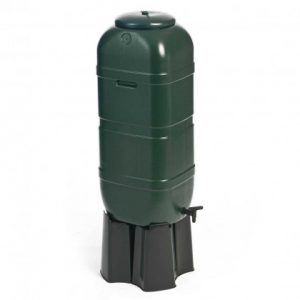
Reuse–
We’re all familiar with the terminology reduce, reuse and recycle when it comes to recycling, we can teach our children to reuse, when it comes to recycling items and turn them into something useful, I’ve created a board on pinterest, ‘make and do, using recycled items’, to inspire you, some items, might need a little help from parents to provide from home. https://www.pinterest.ie/longfordCCC/make-and-do-from-recycled-items/.
Seeds–
In Autumn time, collect seeds with the children, you can collect oak, ash, horse chestnut, beech, birch, hazel, sycamore, apple, collect these and plant with the children, bare in mind, if you plant these in Autumn, these will not germinate until Spring. If you visit this website it will give you advice on how to plant the seeds and aftercare. Seeds are free, so when going on your nature walk, collect as many as you like.
Flowers–
Do you plant flowers with the children, pansys, sunflowers, sweetpea? Don’t forget to harvest their seeds with the children, when they’re ready and store for next Spring. This gives children an appreciation for the circle of life, if the children won’t be with you come Spring, either send them home with them, to plant with their family or send them on to their next teacher.
Green Flags–
Most schools are familiar with the present programme ran for primary schools and secondary schools. We have been in communication with Longford County Council, so if any one would be interested in working with them on a programme in their preschool, can they please get in contact with one of the team on 043-3342505.
With Repak, noting an increase in recycling in 2016 on the previous year, we need to continue our journey, until we eliminate refuse waste entirely. With Ireland ratifying the Paris Agreement in November 2016, it is up to each and every citizen of Ireland, young and old, to do their bit to contribute to a greener world and reach it’s primary goal to“ keep the global temperature rise below 2 degrees Celsius compared with pre-industrial times”(The Irish Times).
